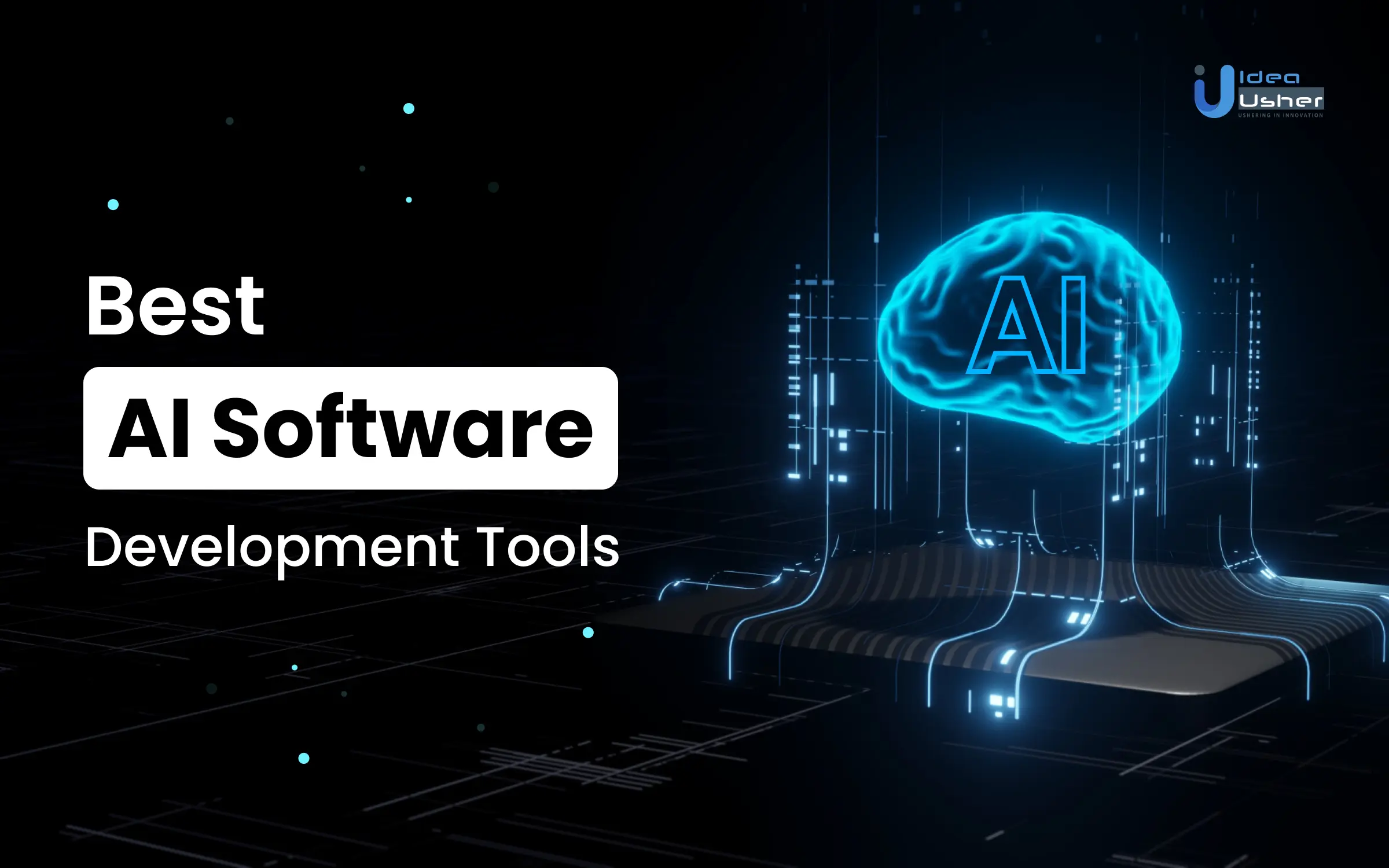
Are you tired of manually analyzing large datasets or struggling to personalize your customer interactions? Do you find yourself bogged down by repetitive and time-consuming tasks that could easily be automated? If so, you are not alone. Many businesses face similar pain points that can significantly impact their bottom line. Fortunately, there is a solution. This blog post will explore the best AI tools to help you address these challenges and take your business to the next level.
But before that, take a look at this data:
- In 2021, the AI market was valued at USD 58.15 billion. Experts anticipate it to reach USD 271.48 billion by 2027, with a remarkable compound annual growth rate (CAGR) of 31.45% during the forecast period from 2022 to 2027.
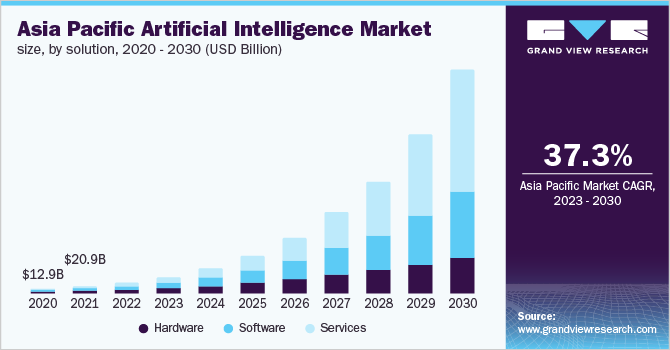
- As per another report, the artificial intelligence market achieved a valuation of USD 136.55 billion in 2022 and is poised to witness a notable compound annual growth rate (CAGR) of 37.3% from 2023 to 2030, reflecting substantial expansion in the global market.
- According to a survey conducted by MIT Sloan Management, an overwhelming majority of organizations, specifically 87%, are confident that adopting AI technologies will provide them with a distinct advantage over their competitors, reinforcing the belief in the potential of AI to enhance competitiveness in the global business landscape.
- IDC and Omdia anticipate a remarkable surge in AI services revenue, with expectations of more than a six-fold increase within five years. The AI services sector generated approximately $19.4 billion in revenue in 2020, and projections indicate an expansion to $62.5 billion by 2022. Furthermore, the forecast predicts that the AI industry will reach an annual revenue of $126 billion by 2025. This substantial growth trajectory emphasizes the significant economic potential of the AI sector.
- O’Reilly reports that nearly half of all businesses, amounting to 48%, actively utilize machine learning (ML), data analysis, and AI tools to uphold the accuracy of their data. This highlights the proactive adoption of these technologies across industries as a means to ensure data precision.
Here are some of the best artificial intelligence tools for software development:
TensorFlow
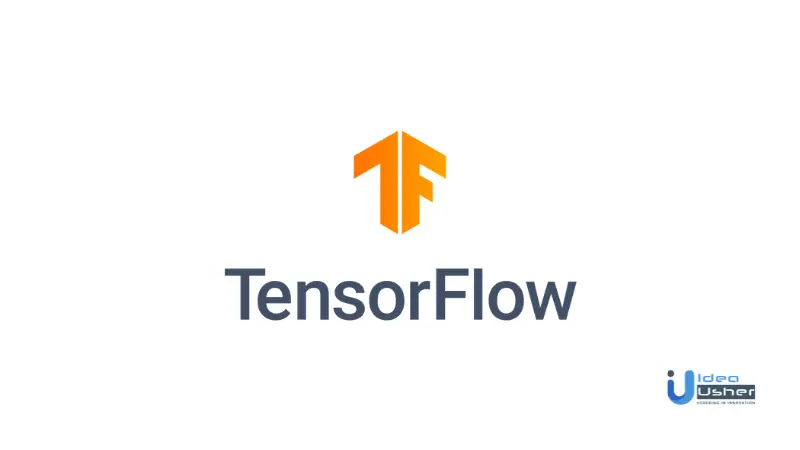
TensorFlow, a comprehensive platform for machine learning, encompasses a wide range of libraries, tools, and resources. It serves as an invaluable asset to numerous researchers worldwide, empowering them to develop cutting-edge ML models that push the boundaries of innovation. Here are some remarkable features and capabilities of TensorFlow:
1. Open Source
- One of the remarkable attributes of TensorFlow is its open-source nature.
- It grants developers the freedom to craft high-quality and precise ML-based applications.
- It provides flexibility that liberates developers from being solely reliant on specific capabilities offered by vendors, enabling them to approach ML problems in diverse and creative ways.
2. Scalability
- Scalability is a paramount feature of TensorFlow, facilitated by its powerful distributed training capabilities.
- Through the application of the TensorFlow DTensor, model training can be seamlessly distributed across multiple devices, thereby enhancing scalability.
- It facilitates parallel training, allowing data to be partitioned across distributed devices, and even enables parallel spatial training that parallelizes model features across devices.
- This feature empowers researchers to utilize resources and achieve optimal performance effectively.
3. Model Building
- With TensorFlow, model building becomes effortless because of high-level APIs such as Keras.
- These APIs simplify the process of developing models and equip developers with rapid debugging and model iteration capabilities.
- TensorFlow supports various programming languages, but Python stands out as the most popular choice among developers.
- The versatility offered by TensorFlow ensures that models can be effortlessly deployed, whether it be on the cloud, on-premises data centers, or even on personal devices and browsers.
4. Community
- A vibrant and expansive community stands as a testament to TensorFlow’s widespread adoption.
- Within this community, numerous researchers and developers come together to tackle a myriad of ML challenges.
- TensorFlow newcomers can take solace in the fact that support and guidance are readily available, facilitating their journey in overcoming real-world obstacles.
5. Extensive Tools
- TensorFlow provides an extensive ecosystem of tools that significantly streamline AI-related tasks.
- Among the array of invaluable tools, there are some widely popular tools available, such as Colab Jupyter Notebook, which offers a collaborative environment for experimentation; TensorBoard, a powerful visualization tool for ML models; and ML Perf, a benchmarking tool used for assessing performance.
- These tools augment productivity and contribute to the overall efficiency and effectiveness of the ML development process.
Rainbird

Rainbird, an emerging AI platform, introduces a suite of evolving technologies encompassing three key modules: Rainbird Infer, Rainbird Flow, and Rainbird AutoML. All of these modules are conveniently accessible through Rainbird Studio, providing users with a comprehensive AI toolkit. Here are the features and capabilities of Rainbird:
1. Rainbird AutoML
- It serves as a module designed specifically for training and deploying machine learning models.
- It enables users to generate highly accurate and reliable predictions, thus enhancing the overall quality of outcomes.
- The trained model’s outputs can seamlessly integrate with Rainbird Infer, leading to more refined and precise predictions.
2. Rainbird Infer
- Rainbird Infer takes center stage in automating the human decision-making process.
- This module harnesses the power of a robust inference engine, enabling the automation of decision-making tasks.
- Through the utilization of knowledge maps, users gain the ability to create visual representations of decision logic, further enhancing transparency and comprehension.
3. Rainbird Flow
- It represents a no-code solution for designing workflows.
- It enables users to develop end-to-end solutions for complex decision-making processes without the need to write extensive code.
- Rainbird empowers users with varying levels of technical expertise to create efficient and effective workflows, streamlining decision-making procedures.
H2O.Ai
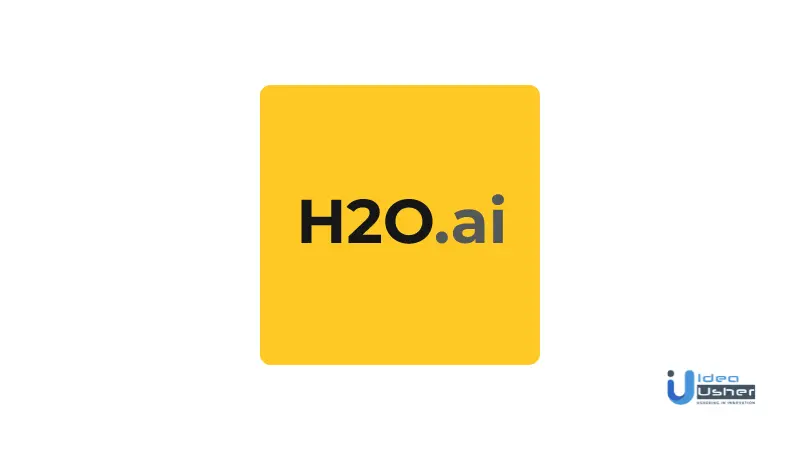
H2O.ai, a cloud-based AI platform, offers a comprehensive suite of AI tools based on machine learning and deep learning models, enabling organizations to address complex business challenges effectively. Here are the important features and capabilities of H2O.Ai:
1. AutoML
- One of the standout features of H2O.ai is its AutoML capabilities.
- This extensive automated ML functionality empowers users to create highly accurate AI models and applications.
- H2O.ai provides an intuitive AI app store, facilitating the seamless distribution of innovative applications to customers.
- These models can be deployed in various environments, including on-premises data centers, cloud infrastructures, and other data sources, ensuring flexibility and scalability.
2. Natural Language Processing (NLP)
- Leveraging H2O.ai’s Driverless AI, text data can be transformed into meaningful features through document feature extraction methods such as CNN, GRU, and TFIDF.
- This advanced NLP capability enables the development of models capable of processing large volumes of text data.
- Driverless AI serves as a valuable tool for building applications like document classifiers and sentiment analysis systems, empowering organizations to unlock insights and intelligence from textual data.
3. Fraud Detection
- The platform’s high-quality ML models are exceptionally well-suited for detecting fraud patterns in large volumes of transactions.
- Leveraging these models, organizations operating in industries such as finance and insurance can deploy real-time fraud detection systems.
- The accuracy and reliability of H2O.ai models make them a preferred choice for combating fraudulent activities, providing organizations with valuable insights and enabling them to take proactive measures to mitigate risks.
Tools By Microsoft Azure AI Platform

The Microsoft Azure AI Platform is a widely recognized cloud platform known for its advanced capabilities. It offers a comprehensive set of features and tools for AI development. The platform covers key AI capabilities that provide a solid foundation for developing AI-powered applications, such as:
- Machine learning (ML),
- Vision capabilities like object recognition,
- Speech capabilities like speech recognition,
- Language capabilities like machine translation, and
- Knowledge mining.
Azure ML is a Python-based automated ML service available within the Azure AI Platform. It simplifies the process of building and deploying ML models. Azure Databricks, an Apache Spark-based big data service, integrates seamlessly with Azure ML, allowing for scalable data processing and analysis. The platform also supports ONNX, an open-source model format and runtime for ML, providing flexibility in model deployment.
The Microsoft Azure AI Platform offers several compelling features and capabilities for businesses to consider for their AI development needs:
1. Extensive Documentation
The platform provides extensive developer resources and documentation, ensuring users have access to comprehensive support materials.
2. Customizable Apps And Agents
Azure AI Platform offers AI apps and agents that can be customized for specific applications. Azure Cognitive Services, which includes pre-trained AI models, caters to a wide range of domains such as vision, speech, and language.
3. Easy Bot Creation
The platform provides a development environment and templates for creating bots, streamlining the bot development process.
4. Simplified Machine Learning Development
The Azure AI Platform is popular for developing new open-source ML algorithms and software solutions, facilitating innovation in the field.
5. Support For Open-source Frameworks
Azure ML works seamlessly with popular open-source AI frameworks like TensorFlow, allowing users to leverage their preferred tools and libraries.
6. Knowledge-mining Capabilities
The platform offers knowledge-mining capabilities, enabling insights extraction from various types of data such as documents, images, and media. It includes Azure Search and Form Recogniser. The former have built-in AI and it is a cloud search service, while the latter is an AI-powered extraction service that generates usable data from documents and forms.
7. Web Service Deployment
Azure provides robust tools for developing and deploying web services, allowing users to transform their ML models into scalable and accessible web services.
8. Cross-platform Integration
Azure supports cross-platform integration, allowing users to access their data across a wide range of platforms. The platform also supports popular programming languages like Python.
9. Scalability
Azure’s scalability and speed make it suitable for building enterprise-scale AI and ML systems, accommodating growing needs, and increasing workloads.
10. Community Support
The vibrant community surrounding the Azure AI Platform provides valuable support and resources for developers, fostering collaboration and knowledge sharing.
IBM Watson
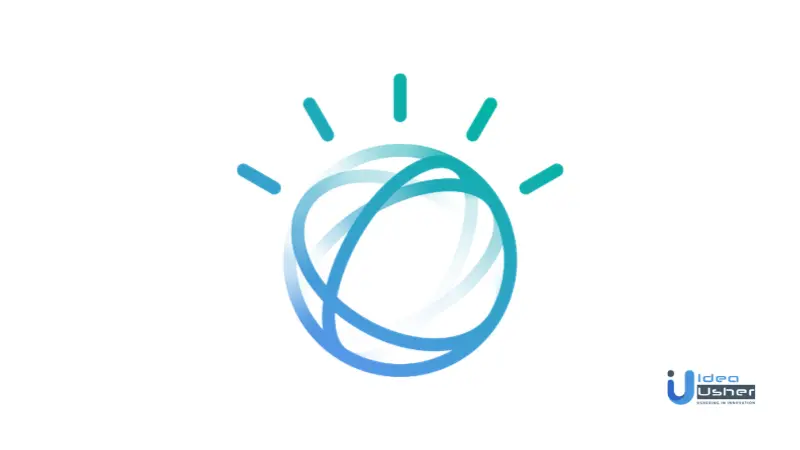
IBM Watson is a renowned AI platform offered by IBM, providing advanced capabilities for AI development across various industries. Some key features and capabilities of IBM Watson include:
1. Developer Tools
IBM Watson provides a range of developer tools, including software development kits (SDKs) and detailed documentation, to facilitate AI app development.
2. Watson Assistant And Discovery
You can integrate Watson Assistant into your applications to build AI-powered conversational interfaces, enabling natural language interactions with users. Moreover, IBM Watson also includes Watson Discovery, an AI-powered search technology that allows your app to retrieve information from disparate data sources, even those stored in silos.
3. NLP And Speech-to-Text
IBM Watson offers Natural Language Understanding (NLU) capabilities, which enable the analysis and understanding of text using NLP techniques. This feature is available on the Watson developer platform. Along with this, it is also capable of offering Speech-to-Text to developers so they can incorporate speech recognition into their applications.
4. Open Platform
IBM Watson is an open platform that can be used to build AI applications in any cloud environment. It is pre-integrated and pre-trained, simplifying the development and deployment processes.
5. Documentation
IBM Watson offers extensive documentation, including starter documentation for the platform, APIs, and SDKs. Developers can access these resources to gain insights and assistance in their AI app development.
6. SDKs and Developer Resources
IBM Watson provides SDKs for various programming languages, such as Swift, Ruby, Java, Python, Node.js, and .NET, catering to diverse development needs.
7. Processing Unstructured Data
IBM Watson enables the processing and analysis of unstructured data, allowing organizations to derive actionable insights from sources beyond structured data.
8. Intelligent Automation And Processing Of Massive Data Sets
IBM Watson supports the implementation of intelligent automation, helping organizations overcome human limitations and enhance efficiency. It enables users to process large data sets at scale, making it particularly beneficial for enterprises dealing with vast amounts of data.
Google Cloud AI Platform

The Google Cloud AI Platform is a powerful cloud computing solution offered by Google, providing a wide range of features and capabilities for AI development. The key features and capabilities of the Google Cloud AI Platform include:
1. Machine Learning
The platform enables the development and deployment of machine-learning projects with an integrated toolchain. It supports popular AI frameworks like TensorFlow and allows the creation of portable ML pipelines using Kubeflow, an open-source platform from Google.
2. Deep Learning
Google Cloud AI Platform offers pre-configured Virtual Machines (VMs) specifically designed for deep learning applications. These VMs come with popular AI frameworks such as TensorFlow, PyTorch, and Scikit-learn pre-installed, making them easy to launch and use.
3. Natural Language Processing (NLP)
The platform provides NLP capabilities, allowing users to analyze text and understand its meaning and structure. Google NLP API offers RESTful APIs for text analysis tasks. It supports functions like sentiment analysis, entity recognition, and content classification.
4. Speech
The Google Cloud AI Platform includes APIs for speech-to-text and text-to-speech capabilities. The speech-to-text API converts audio into text, supporting a wide range of languages. The text-to-speech API enables the creation of natural-sounding speech from text, providing audio output in various formats.
5. Vision
The platform offers vision capabilities through REST and RPC APIs powered by pre-trained machine-learning models. Users can extract insights from images, detect objects and faces, and read printed or handwritten text.
6. Deployment And Scalability
The Google Cloud AI Platform provides tools and infrastructure for deploying machine learning models, creating ML workflows, and scaling applications. It supports popular frameworks, ensuring compatibility and ease of use.
7. AI Hub
The platform features AI Hub, a catalog of reusable ML models built on established frameworks like TensorFlow, PyTorch, and Keras. It allows users to discover, share, and deploy models quickly, simplifying the development process.
8. Kubeflow Pipelines
Users can leverage Kubeflow Pipelines to deploy ML workflows on Kubernetes. Kubeflow is a tool designed for Kubernetes that simplifies the deployment of ML workflows using Docker containers.
9. Enterprise-scale AI Systems
The platform offers scalability, performance, security, and tools required for building enterprise-scale AI systems. Its cloud capabilities enable seamless integration and future enhancements.
Infosys Nia

Infosys Nia is an AI platform developed by Infosys that empowers the creation of AI-powered applications. It offers a range of features and capabilities to support AI development:
1. Machine Learning
Nia Advanced ML provides a wide array of machine-learning algorithms that operate at scale and speed. This simplifies the process of building high-performing ML models.
2. Contracts Analysis
Nia includes contract analysis capabilities that leverage machine-learning, semantic modeling, and deep learning techniques. These capabilities enable the analysis and understanding of contracts, extracting relevant information and insights.
3. Nia Chatbot
The Nia platform allows the development of AI-powered chatbots. These chatbots can access the enterprise knowledge repository and automate actions through conversational interfaces.
4. Nia Data
Nia Data is a robust analytics solution that can be integrated into AI applications. It provides advanced data analytics capabilities for extracting valuable insights from data.
5. Tools For Effective Machine Learning
Infosys Nia provides artificial intelligence software development tools that facilitate the creation of ML training models. These tools streamline research processes, especially when dealing with large datasets.
6. Scalability And Speed
The platform offers the necessary infrastructure and capabilities to process large datasets at scale. It ensures high-speed data processing, which is crucial for AI and ML projects.
7. Data Management
Managing data can be a complex task in AI and ML projects, and Nia simplifies this process by providing frameworks and technologies for effective data management that ensures organized and accessible data.
Dialog Flow
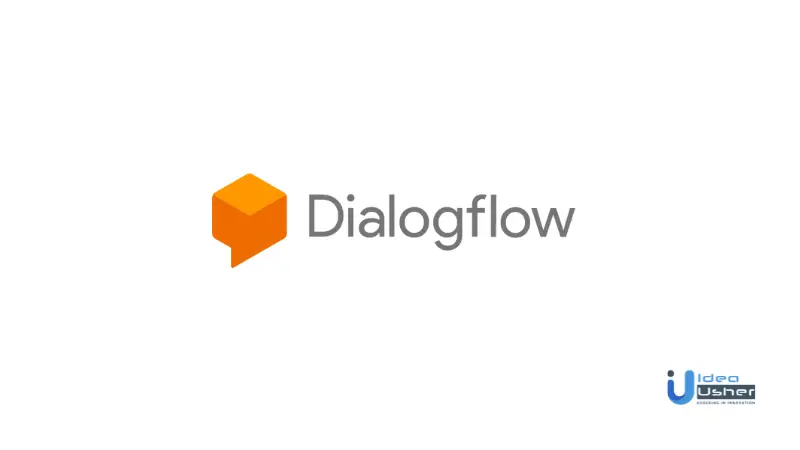
It is a Natural Language Processing (NLP) tool that offers features like Agents, Intents, Entities, Contexts, Follow-up Intents, and the Dialog Flow Console. Decision-makers in the technology industry might want to create AI systems using Dialog Flow because of the following features it offers:
- Agents manage conversations with users and it contains a module to understand natural language.
- Intents help Dialog Flow assign different categories to the intention of a user.
- Entities determine how Dialog Flow extracts data from expressions of users.
- Contexts help to control the flow of interaction.
- Follow-up intents allow Dialogflow to add contexts to the “parent intents.”
- Dialog Flow Console is a web user interface that allows users to manage “agents.”
1. Scalability
Dialogflow runs on the Google Cloud Platform, which allows for easy scaling of AI applications.
2. Conversational Interfaces
Dialog Flow enables the creation of voice and text-based conversational interfaces for web and mobile apps. It also offers integration with platforms like Google Assistant, Amazon Alexa, and Facebook Messenger.
3. SDKs
Dialog Flow provides useful software development kits (SDKs) that assist developers in building AI systems.
4. User-friendly
Dialog Flow is known for its user-friendly development environment, making it accessible to both technical and non-technical users.
5. Integration Capabilities
Dialog Flow supports integration with important programming languages that allow seamless integration with existing systems and workflows.
BigML
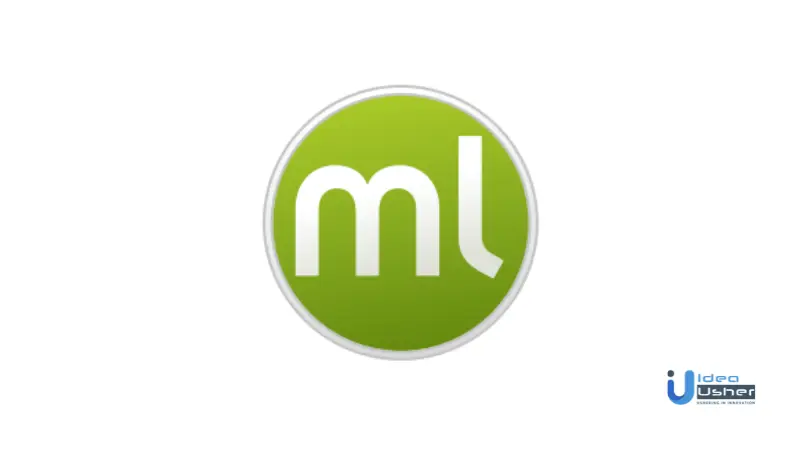
BigML’s ML capabilities, instant access, language support, automation, flexible deployment options, security, scalability, and integration capabilities make it an attractive choice for businesses looking to develop ML systems. Moreover, there are some more capabilities and features that might encourage businesses to develop Machine Learning (ML) systems using BigML:
1. Robust ML Algorithms
BigML offers a wide range of robust ML algorithms for both supervised and unsupervised learning, allowing businesses to build accurate and efficient ML models.
2. Instant Access and Interpretable Models
BigML provides instant access to its ML platform through a REST API, enabling businesses to integrate ML capabilities into their applications. Additionally, BigML offers interpretable and exportable ML models, allowing for better understanding and transparency.
3. Programmability And Language Support
BigML supports popular programming languages such as Node.js, Ruby, Python, Java, Swift, and more, providing flexibility for developers to code their ML applications using their preferred language.
4. Automation And Predictive Modeling
BigML helps automate predictive modeling tasks, reducing manual effort and streamlining the ML development process.
5. Flexible Deployment Options
BigML allows for deployment both on-premises and on the cloud, providing businesses with flexibility and scalability to suit their specific needs. BigML’s smart infrastructure solutions aid in scaling ML applications effectively.
6. Security And Privacy
BigML ensures robust security and privacy features to protect sensitive data and maintain confidentiality throughout the ML process.
7. Scalability And Real-time Predictions
BigML offers scalability, allowing businesses to handle large datasets and increasing prediction throughput. It also enables the generation of real-time predictions, facilitating real-time decision-making in applications.
8. Integration And Automation
BigML provides a RESTful API that enables easy integration with other systems and automation of ML processes.
Apache MXNet

MxNet is a leading AI software development tool known for its deep learning framework and advanced natural language processing (NLP) capabilities. It offers several features that enhance AI development and enables scalable and efficient training and deployment of neural networks. Some of the main features of MxNet are:
1. Open-source Deep Learning Framework
MxNet is an open-source framework that provides access to its source code and allows developers to customize and extend its functionalities according to their specific needs.
2. NLP Capabilities
MxNet offers advanced natural language processing capabilities, allowing developers to build AI-based applications that can understand and process natural language inputs. This is particularly useful for tasks such as sentiment analysis, language translation, text classification, and more.
3. Scalability
MxNet is designed to be highly scalable, enabling the training and deployment of neural networks across multiple GPUs and machines. It provides efficient distributed training capabilities, making it suitable for large-scale AI applications.
4. Define, Train, And Deploy Neural Networks
MxNet provides a comprehensive set of tools and APIs that allow developers to define, train, and deploy neural networks. It supports various neural network architectures and provides flexible APIs for model creation, training, and inference.
Challenges, Benefits, And Tips For AI Tools
1. Challenge:
Companies often find themselves grappling with the adoption and implementation of AI tools due to a variety of reasons. One of the primary challenges is a lack of expertise. AI technology is complex and constantly evolving, requiring specialized knowledge and skills that only some companies possess. With the necessary expertise, it becomes easier to identify the right AI tools for specific business needs and to implement them effectively.
Another common challenge is the lack of a well-defined strategy. Companies may be aware of the potential benefits of AI, but without a clear roadmap and strategy, they struggle to integrate AI tools seamlessly into their existing workflows. Additionally, inadequate resources can hinder AI adoption. Implementing AI tools requires investments in infrastructure, data management, and training, which can strain budgets and resource allocations.
2. Benefits:
Despite the challenges, leveraging the best AI tools can offer significant benefits to businesses. Here are three key advantages:
2.1. Improved Efficiency
AI tools can automate repetitive tasks, streamline processes, and reduce human error. According to a study by McKinsey, AI automation can increase productivity by up to 40%. By implementing AI tools, you can free up valuable time and resources, allowing your team to focus on more strategic and value-added activities.
2.2. Enhanced Decision Making
AI tools provide valuable insights and predictive analytics based on vast amounts of data. This enables businesses to make data-driven decisions with greater accuracy and speed. In fact, a survey conducted by PwC found that 87% of companies believe AI has positively impacted their ability to make informed business decisions.
2.3. Personalized Customer Experience
AI-powered tools enable businesses to deliver personalized experiences to their customers. By analyzing customer data, AI can help tailor recommendations, offers, and interactions, increasing customer satisfaction and loyalty. According to Accenture, 91% of consumers are likelier to shop with brands that provide personalized suggestions and recommendations.
3. Practical Tips:
To help you leverage AI tools effectively and achieve real business benefits, here are some practical tips you can implement:
3.1. Start With A Clear Objective
Define your business objectives and identify specific areas where AI can make a significant impact. Whether it’s automating customer support, improving supply chain management, or enhancing marketing campaigns, having a clear objective will guide your AI tool selection and implementation process.
3.2. Leverage Pre-Trained Models
If you’re new to AI, consider utilizing pre-trained models available in AI toolkits. These models are already trained on vast amounts of data and can be readily applied to various use cases, saving you time and resources.
3.3. Foster A Culture Of Experimentation
AI is a rapidly evolving field, and experimentation is key to success. Encourage your team to explore and experiment with different AI tools and techniques. Set up a framework for testing and learning from these experiments to continuously improve your AI capabilities.
Case Study: Usage Of AI Tools In 2023
1. Leveraging AI Tools for Enhanced Work Efficiency
- An exploration of various AI tools beyond ChatGPT reveals their potential to revolutionize work processes and increase productivity.
- Midjourney, a text-to-image AI generator, simplifies visual creation, while Copy.ai streamlines content generation.
- Tableau empowers data analysis without coding experience, and Murf converts text to speech seamlessly.
- Jasper offers efficient content writing with plagiarism and grammar checks.
- Fireflies optimize note-taking during meetings through real-time transcription.
- These AI tools collectively demonstrate the transformative impact of AI in reshaping work dynamics and maximizing efficiency, opening up new possibilities for businesses across industries.
2. Embracing Conversational AI For Productivity And Trust
- The emergence of generative AI applications like ChatGPT signals a golden age of AI.
- Aakrit Vaish, CEO of Haptik, encourages embracing conversational AI while acknowledging both excitement and skepticism.
- Conversational AI enables natural interaction with AI engines for various topics and has the potential to simplify tasks and enhance productivity.
- Building digital trustworthiness is essential for the responsible deployment and acceptance of AI.
- Integrating large language models in conversational AI can revolutionize content creation, healthcare, and education.
- Historical examples, such as ATMs replacing bank tellers, show that AI augments and advances roles rather than eliminating them.
- Businesses must be patient while exploring the transformative impact of AI and foster digital trust to harness its potential for innovation and productivity.
3. Harnessing AI Tools For Marketing Success
- The emergence of powerful generative AI tools like ChatGPT, Bard, and Dall-E is considered the third major technology platform shift of the digital age.
- AI tools, such as ChatGPT, have the potential to impact various fields, including marketing, advertising, law, and journalism.
- There is a mixture of wonder and fear surrounding AI tools as they demonstrate intelligence and raise concerns about job replacement.
- Instead of fearing AI advancements, it is important to view them as amplifiers of human capabilities rather than replacements.
- Generative AI tools can assist in summarizing information, organizing thoughts, brainstorming, and providing frameworks for action.
- It is crucial to understand the power and limitations of AI tools and to consider them as digital assistants rather than substitutes for human expertise.
- Marketers can leverage AI tools to find new audiences, understand customer needs, and improve advertising and marketing efforts.
- AI tools can enhance productivity and efficiency in various industries, such as programming and professional writing.
- Adapting to and exploring these new AI tools can lead to skill enhancement and improved connections with customers.
- Curiosity and experimentation with AI tools are encouraged to uncover their capabilities and potential applications in businesses.
Explore AI Software Development Tools With Idea Usher
If you are planning to develop Artificial Intelligence solutions, it is important to keep in mind that AI and ML development require niche skills and can be complex. Therefore, it is recommended to engage a reputable software development company that offers real-time progress reporting for such projects.
Finding a competent development partner can be a challenge, but Idea Usher can help you hire the best AI developers. Our developers are experts in all programming languages and aspects of AI and ML development, and we have experience developing solutions for a variety of ecosystems.
To get started, simply get in touch with us!
Contact Idea Usher at [email protected]
Or reach out at: (+1)732 962 4560, (+91)859 140 7140
FAQ
Q. Is artificial intelligence software?
A. Yes, artificial intelligence (AI) is a type of software that uses algorithms and machine learning techniques to enable computers to perform tasks that would typically require human intelligence, such as recognizing patterns, understanding natural language, and making decisions.
Q. Can AI be used in software development?
A. Yes, AI can be used in software development. AI techniques, such as machine learning, natural language processing, and automated reasoning, can assist in various stages of the software development lifecycle. AI can help with tasks like code generation, bug detection, automated testing, and even improving the user experience of software applications. AI-powered tools and frameworks are increasingly being adopted by developers to enhance productivity and create more intelligent and efficient software systems.
Q. Which platform is best for AI development?
A. Here is the list of some of the best platforms for AI development:
- Tensor Flow
- Rainbird
- AWS AI Service
- H2O.Ai
- Wipro Holmes
- MXNet
- Microsoft Azure
- IBM Watson
- Google Cloud Ai Platform
- Infosys Nia
- Dialog Flow
- BigML, etc.






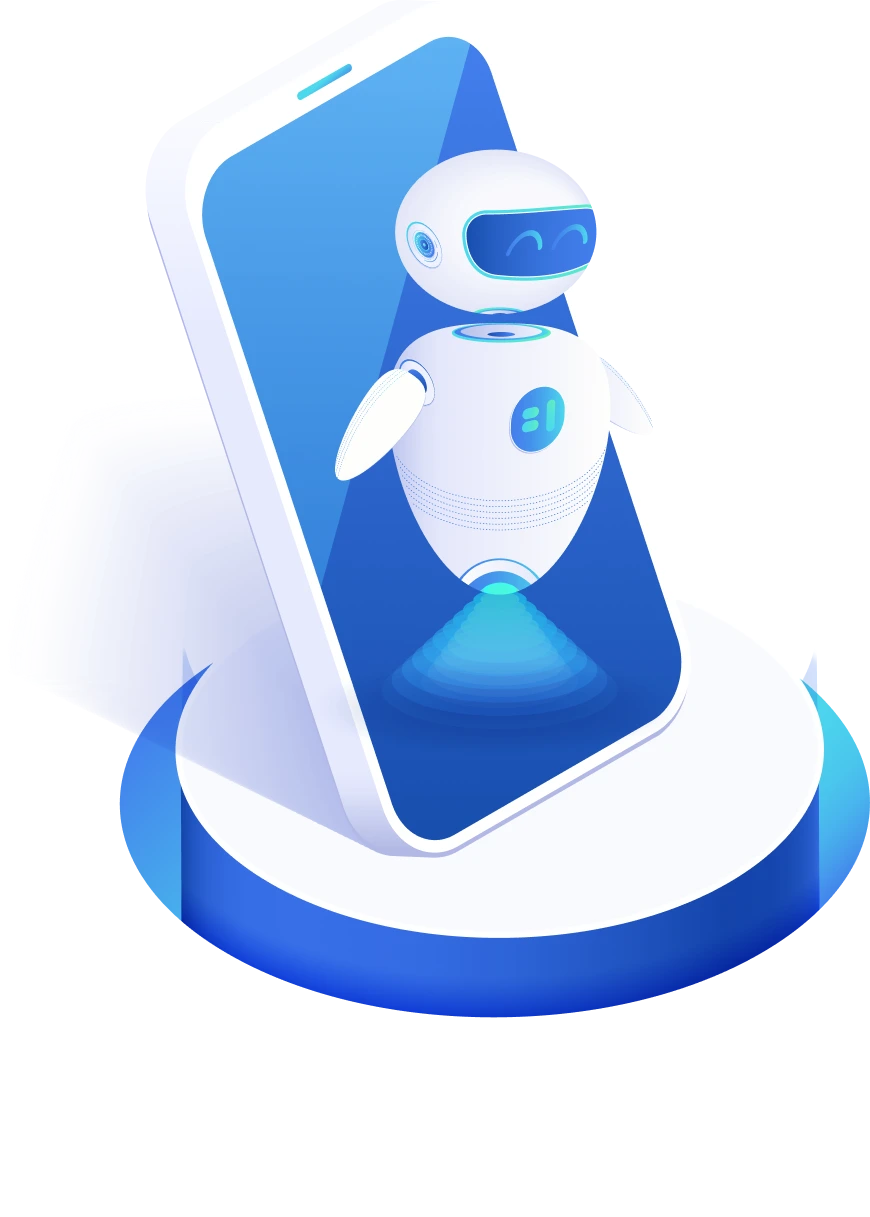


Rebecca Lal